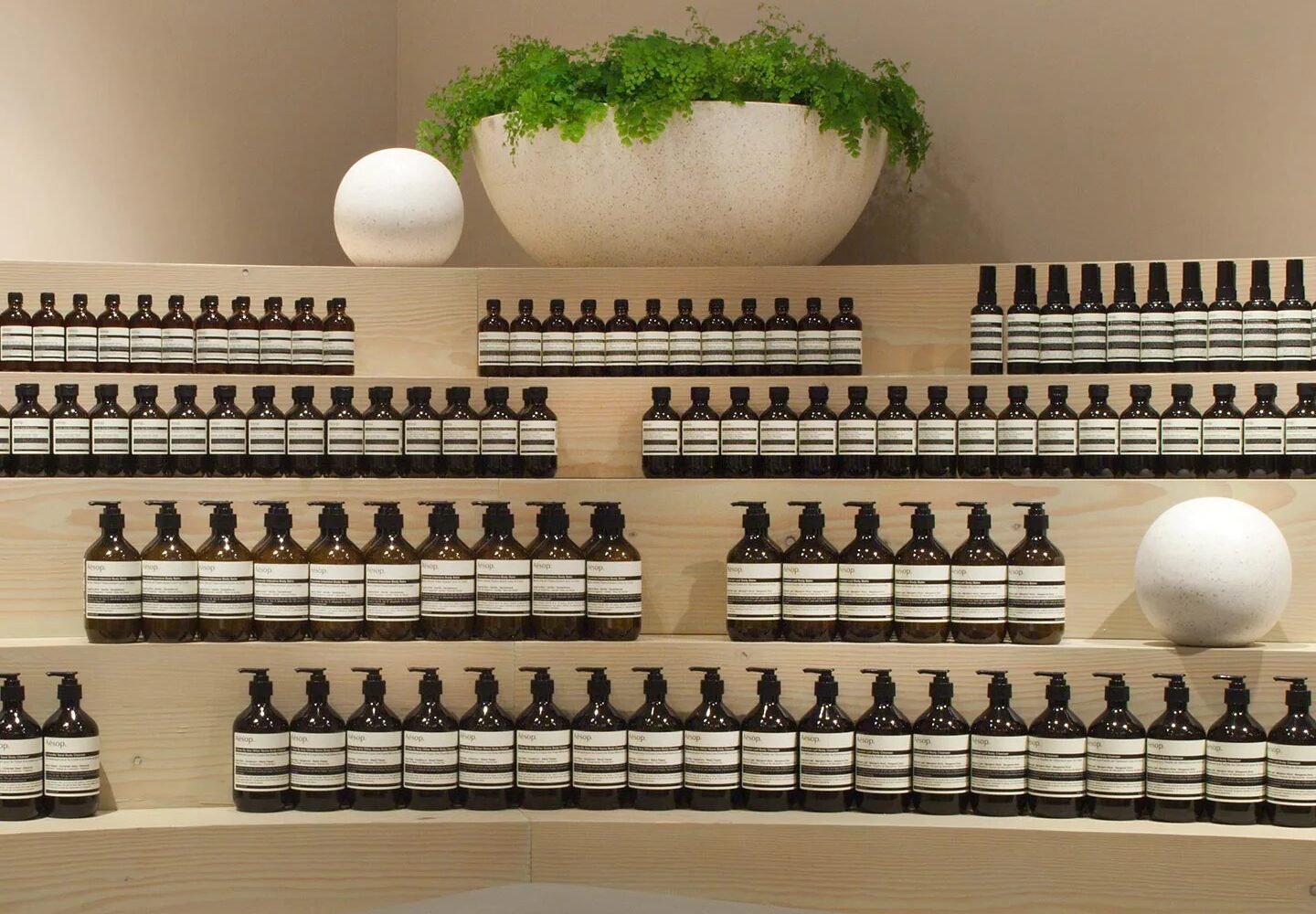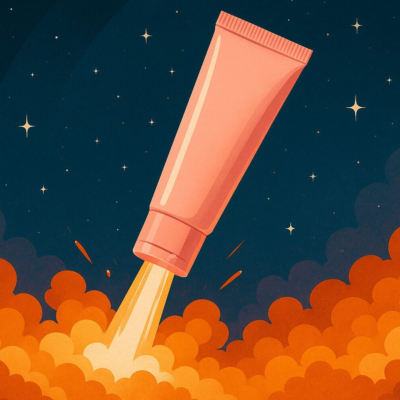
What Should Emerging Brands Draw From L’Oréal’s $2.5B Deal For Aesop?
The big news in the beauty industry this week didn’t happen in New York. Instead, it was the announcement that French beauty conglomerate L’Oréal has agreed to buy Australian-born Aesop from Brazilian company Natura & Co for $2.5 billion, the most it’s ever paid for a brand. Natura & Co secured a 65% stake in Aesop in 2012 for almost $70 million before gobbling up the rest of it four years later.
Aesop was founded as Emeis, the Greek word for “us,” in 1987 by Dennis Paphitis, a hairdresser who began mixing products in his Melbourne salon that would later be the basis for hundreds of high-design stores around the world and bathroom candy broadcasting cool sophistication in countless chic homes and hotels. In 2009, American firm Harbert Private Equity scooped up 26% ownership in the brand and put it on a path toward scaling on its own terms by eliminating distributor arrangements.
According to Natura, Aesop’s sales have multiplied by nearly 20 to go from $28 million in 2012 to $537 million in 2022. L’Oréal, which bested Shiseido, Clarins, LVMH Moët Hennessy Louis Vuitton, Permira and Primavera in the battle to win Aesop, is looking to further multiply the brand’s sales by expanding it in China and travel retail. The company expects it to precipitously reach $1 billion in sales.
Aesop’s trajectory is the stuff of founders’ dreams. To understand a bit about what they should learn from it and its huge exit, for the latest edition of our ongoing series posing questions relevant to indie beauty, we asked 12 beauty industry investors, investment bankers and experts the following questions: What does L’Oréal’s acquisition of Aesop say about beauty M&A today, and what does it mean for it? What should emerging brands take away from it?
- Deborah Benton Founder and General Partner, Willow Growth Partners
Despite rough and volatile economic times, the outlook for beauty M&A remains robust, even for mega deals and especially for A-plus assets. Aesop's positioning, with its plant-based ingredients and sustainable, eco-friendly formulations lies at the intersection of clean beauty and luxury, two of the fastest-growing beauty segments. The prestige and luxury segments are particularly attractive right now as they attract consumers less affected by economic downturns.
L'Oréal is eager for international expansion and is looking to increase revenue significantly, especially in the large China market, one of the fastest growing for cosmetics. Many suitors were vying for Aesop. This, coupled with the sheer size of the all-cash deal, L'Oréal's largest to date, provides strong signals that M&A activity in the beauty sector will continue, especially for powerful, values-led brands that reflect and respond to the importance consumers are placing on things like plant-based ingredients, clean formulations and sustainable practices.
For emerging brands, the message is clear: Strategics strongly value powerful brands that are responding to evolving consumer values and sentiment. The intersection of skincare, wellness and overall self-care is an enviable positioning, and with the consumer's increasing focus on health, a positioning that will only continue to command increasing attention.
Brands that successfully capture powerful consumer evangelists and build large customer tribes will manage to become meaningful, even essential, in their customers' everyday lives. With this, they ensure themselves a very sticky customer relationship and robust lifetime value. For these brands, M&A with very attractive multiples will continue to provide real and very attractive exit opportunities.
- Rich Gersten Co-Founder and Managing Partner, True Beauty Ventures
The deal says the market is still active for attractive brands that fill a need within a strategic buyer’s portfolio. While overall the M&A market has slowed, we have seen deals for Aesop and Mielle Organics by L'Oréal and P&G, respectively, in the last few months.
Aesop illustrates the power of brand equity. It is a beautiful brand that has stayed true to its positioning and delivered a high degree of quality, from product to experience. Aesop also demonstrates the importance of having a strong and profitable direct-to-consumer business.
Overall, a key takeaway for emerging brands is that they should not focus their resources on exiting, but rather on thoughtfully building a brand with a clearly differentiated positioning and consistent brand architecture that addresses an important market need.
- Aisha Khan VP, Strategy and Insights, Momentum Commerce
Despite global macroeconomic headwinds, investors still have cash waiting to be deployed, and large conglomerates are still cash-rich entities with long-term growth goals. L'Oréal's acquisition validates that the beauty category will be one of the first to receive active capital inflow once the deal market picks back up given its large addressable size and high margin profile.
The biggest takeaway for emerging brands is to focus relentlessly on creating value through an unwavering brand identity, profitable acquisition and retaining your target audience. For brands that sit in the masstige mid-priced space, you must know how to speak to your target audience more than ever so they are not tempted to trade up or trade down.
- Tina Bou-Saba Co-Founder and Co-Managing Partner, Verity Venture Partners
L'Oréal's acquisition of Aesop is great news for the beauty/health/wellness space. This is L'Oréal’s largest acquisition ever, not something that a conglomerate led by very smart people would do if they didn’t believe in the strength of the brand and natural beauty category.
We see that, even in an uncertain economic environment and with 1Q 2023 global M&A at its lowest level in over a decade, strategics continue to acquire outstanding brands with excellent products, loyal customers and global distribution potential. This reflects the resilience of the beauty/personal care categories as well as the propensity for consumers to trade up for aspirational brands like Aesop.
The brand has done a terrific job maintaining its cult status, even with over $500 million in sales. I’d also note that Aesop was founded in 1987 and growth has not been a straight line—it rarely is!—culminating in its initial acquisition by Natura. In other words, success did not happen overnight. There were twists and turns along the way. Emerging founders should note the company’s disciplined approach to distribution, including hospitality and owned retail, unique and high-quality products, and exceptional brand differentiation.
- Earl Robinson CEO, Goodwill Brands
What’s old is new again. Retail doors and IRL customer engagement are must-haves and the window for DTC pure-play exits to global strategics may be closed for now.
Aesop has a global retail footprint coupled with killer brand architecture and solid footing in the “prestige skincare as lifestyle” lane. It is tough to find or build/scale a comparable asset.
The signal to emerging brands: It’s cost-effective to launch and in the initial years live DTC and in social feeds, but real equity value and exit value comes from omnichannel awareness and owned retail doors.
- Tracy Holland Co-Founder, Goodwill Brands
Aesop's exit valuation sent shockwaves—($2.5 billion!)—and it’s proof that building deep, longstanding trust and customer confidence will ensure a long, but highly lucrative ramp for valuation.
Aesop never wavered from who they were as a brand. They maintained a deep connection to their consumer. They stood steadfast for luxury and aspiration.
What the deal signals to indie brands is hang in there, stick to your roots, don’t follow fast fashion, but keep true to your ethos. The payoff at exit will be worthwhile if you don’t waiver on what resonates with your core base.
- Chris Hobson President and CEO, Rare Beauty Brands
I think the acquisition says more about brand building today than M&A. Social media, DTC and online marketplaces have allowed brands to scale very quickly over the past several years, but it takes time to truly build brand equity. Great brands forge a deep connection with their consumer, and they live where that consumer shops.
Aesop's owned stores and select brick-and-mortar distribution forge that connection well. As far as M&A though, it does show a bifurcation in the market. Great brands with scale and profitability can achieve attractive valuations even in this tough market, while those without won't.
- Ransley Carpio VP, Business Development and Head of Venture Investments, Fortress Brand
Aesop patiently built its brand by pursuing a sophisticated simplicity that feels easy to consume, but few can execute. It took its time, always portraying a quiet confidence. The result—L'Oréal's largest acquisition to date, one that further demonstrates beauty M&A’s resilience and the price a flagship brand can still command.
I am constantly in awe of the modern founder’s agility amidst a rapidly evolving market. Despite the pressure on founders to scale quickly and create as much noise as possible, I hope Aesop’s story will give reassurance to founders that it’s OK to build their brand on its own time.
- Ashleigh Barker Head of Beauty and Personal Care, Lincoln International
This transaction underpins the sentiment we’ve shared before that there remains strong buyer interest for top tier assets in beauty. Brands that are uniquely positioned across categories—in Aesop’s case, across aspirational lifestyle, beauty and retail—remain very appealing to investors.
Buyers still want to see and will give credit for attractive sales momentum and strong profit margins that support a brand’s ability to tap into new growth opportunities (i.e., new channels or geographic markets) that help make the case for synergies that can be accretive to the acquirer’s bottom line.
The takeaway for emerging brands is that success is not achieved overnight. Aesop was founded 30 years ago and evolved to gain recognition for its innovation in packaging and branding, which attracted new audiences, from the beauty enthusiast to the beauty novice, who were all proud to display the brand on bathroom shelves.
Emerging brands should be patient and consider how to build a platform that will have lasting longevity in decades to come, not just fitting a trend of the moment.
- Luc-Henry Rousselle Managing Director, Consumer, Leisure and Retail Team, DC Advisory
This success story for Natura is a shining example of how strategic players can create tremendous value by scaling beautiful brands the right way after acquisition.
Despite current slow M&A environment, this shows strategic beauty players are being opportunistic and ready to make acquisitions if high quality assets come to market.
This deal represents a rare multibillion single brand transaction, highlighting the confidence that L'Oréal has in leveraging its platform and global reach to further scale the brand.
- Madeline Kaplan Principal, Selva Ventures
L'Oréal's acquisition of Aesop is an exciting moment in the beauty industry. The transaction shows a shift in big beauty to put clean, sustainable and inclusive at the forefront of luxury. This is a global trend.
For emerging brands, it is important to keep in mind that it took Aesop over three decades and multiple transactions to get to this point. This was not an overnight success, but is a good indicator that brands building with ingredients, efficacy and experience in mind are headed in the right direction.
- Odile Roujol Founding Partner, Fab Co-Creation Studio Ventures
For me and many customers, Aesop means great products and scents that are addictive, and also an enjoyable experience in store.
The fact that corporations were all on the deal, and L'Oréal acquired the brand at this level of valuation shows that mergers and acquisitions will continue for exceptional brands with loyal customers and an engaged community and, more than ever, founders should take the time to build their company with a unique territory and tone of voice, and healthy metrics, sustainable growth and good EBITDA. It makes a big difference.
If you have a question you’d like Beauty Independent to ask beauty investors, investment bankers and experts, please send it to editor@beautyindependent.com.






Leave a Reply
You must be logged in to post a comment.